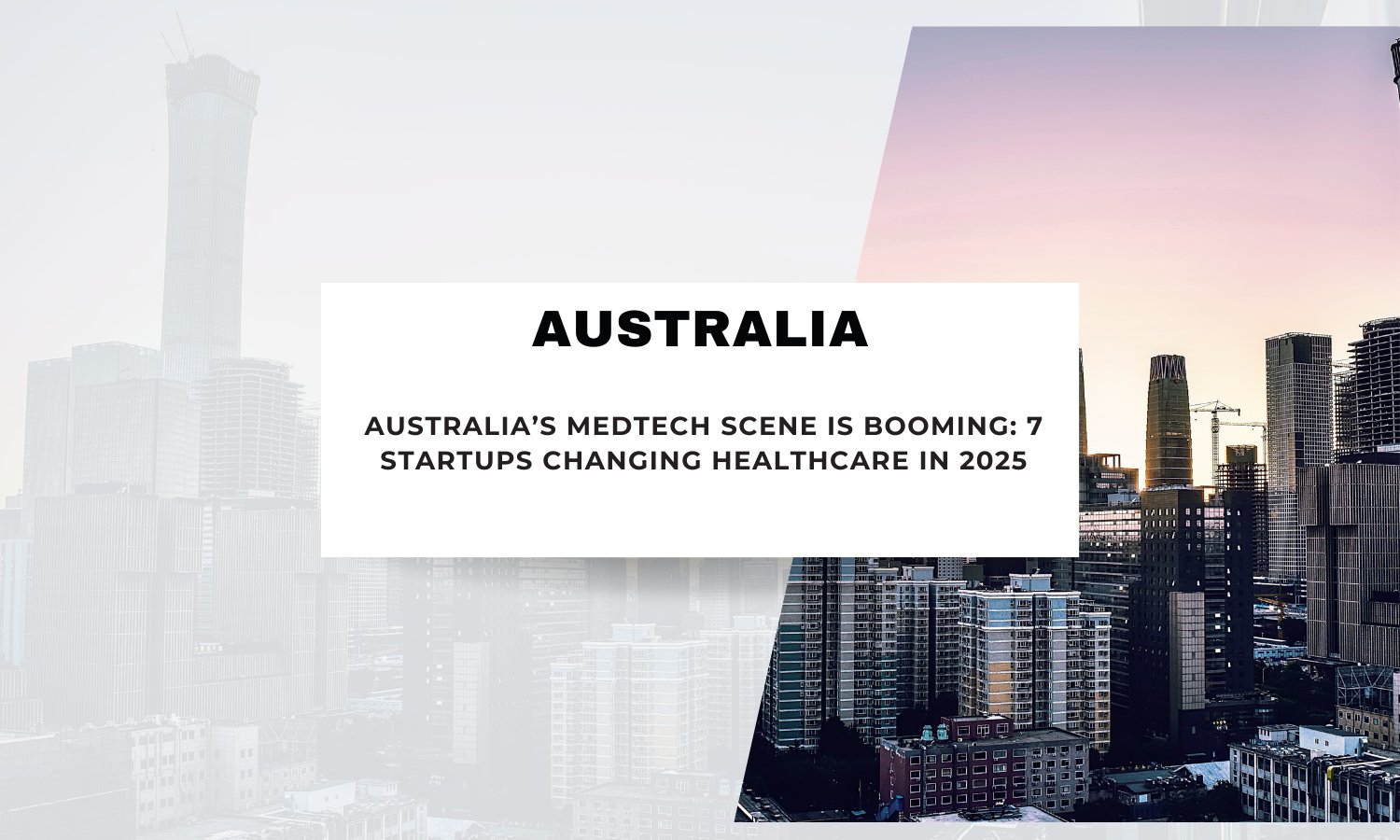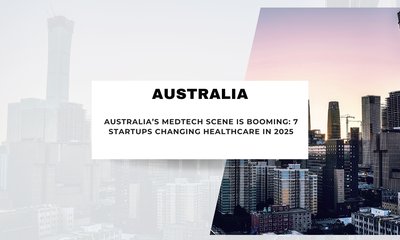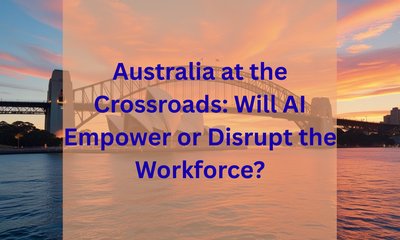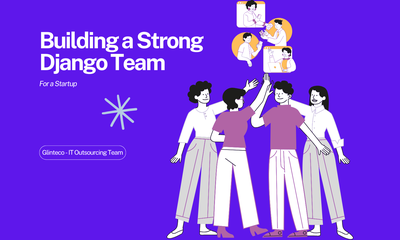Australia’s MedTech Scene is Booming: 7 Startups Changing Healthcare in 2025
By hientd, at: July 23, 2025, 12:44 p.m.
Estimated Reading Time: __READING_TIME__ minutes


Australia’s MedTech scene isn’t just expanding, it’s exploding into something truly exciting, turning the country into a serious player on the global healthcare stage.
You’ve got this perfect storm of top-notch science, wild AI breakthroughs, and a real drive to fix everyday problems in hospitals and clinics. These aren’t baby steps; we’re talking about companies that are flipping the script on how we diagnose, treat, and look after patients. Australia, with its killer research hubs and that collaborative vibe, is finally getting the spotlight it deserves as a hotspot for med tech that actually changes lives.
Let me walk you through seven standout companies that show just how vibrant this space is getting:
OncoRes Medical – Perth, WA
What they do
Picture this: A surgeon’s in the middle of removing a breast tumor, and they’ve got this handheld gadget that acts like a super-powered sixth sense, spotting leftover cancer cells right there in the OR. That’s OncoRes Medical for you.
They’re building a probe that mixes quantitative micro-elastography (QME) with Optical Coherence Tomography (OCT) to create super-detailed maps of tissue stiffness. It’s basically like having a mini MRI that lets doctors “feel” tiny differences signaling hidden tumors.
Why it matters
Right now, about a third of breast cancer patients need another surgery because some cells get missed. This tech could drastically reduce that by giving instant feedback, so surgeons nail clear margins the first time.
Traction
-
Backed by: Medical Research Commercialisation Fund, University of Western Australia, Harry Perkins Institute, Brandon Capital
-
FDA “Breakthrough Device” status
-
Recently showcased on Nine News; attracting U.S. investor interest
Harrison.ai – Sydney, NSW
What they do
Harrison.ai is leading the charge on blending AI into healthcare without replacing human doctors. Their platforms, Annalise.ai (for X-rays) and Franklin.ai (for pathology), team up AI with clinicians to make diagnoses faster and sharper.
They’ve even built their own large language models for reading medical images, one reportedly outperforms models from OpenAI, Anthropic, and Google.
Why it matters
The world is short 1.5 million radiologists. That means delays and missed diagnoses. Harrison.ai acts like an extra set of eyes that never sleeps, catching issues early across all kinds of scans.
Traction
-
Used by 50% of radiologists in Australia
-
Active in over 1,000 sites across 15 countries
-
Raised $112M Series C (Feb 2025), total funding over $240M
-
Valuation: $387M (up from $208M in 2021)
-
Backers: Aware Super, ECP, Horizon Ventures, Ord Minnett, Wollemi Capital Group
-
Global expansion: U.S., Europe, Middle East, Asia
Arkwright Technologies – Sydney, NSW
What they do
Arkwright is pioneering next-gen health monitoring using fiber-optic sensors that detect micro-changes in pressure, vibration, strain, and temperature. Plug them into a cloud-based AI system and you’ve got a 24/7 smart alert system for early health warnings.
Why it matters
It’s about moving from “treating illness” to preventing it. Whether it’s a nursing home, a recovery room, or a smart home, this tech picks up subtle signs like changes in breathing or early bedsores so help comes sooner.
Traction
-
Spin-out from CSIRO
-
Winners of the Eureka Prize and InnovationAus Awards
-
Deep science roots and high clinical reliability
Q-Sera – Brisbane, QLD
What they do
Q-Sera developed RAPClot™ blood tubes using a wild trick—recombinant snake venom from the Taipan! It rapidly clots blood—even in patients on anticoagulants like warfarin.
Why it matters
In ERs and labs, waiting 30+ minutes for clotting slows everything down. Q-Sera’s tech delivers serum in under 5 minutes, which is huge for emergencies.
Traction
-
Partnership: University of Queensland + CSIRO
-
Patents secured (US, till 2035+)
-
Global expansion via Terumo Japan
NexusMD – Melbourne, VIC
What they do
NexusMD’s AI tackles the soul-crushing admin overload in hospitals. Their “agentic” AI assistants use ambient audio and image capture to automate clinical notes, coding, and compliance tasks, seamlessly inside hospital systems.
Why it matters
Doctors spend hours per shift on admin. Early tests show a 30% reduction, freeing them up for what actually matters patient care.
Traction
-
Live in 3 Victorian ERs (since 2024)
-
Next up: ICU automation and outpatient rollouts
Laronix – Brisbane, QLD
What they do
Laronix builds non-invasive voice prosthetics like AVA Voice™ and MIRA Voice™ that restore natural human intonation—even singing—for people who’ve lost their voice.
Why it matters
Losing your voice affects communication, identity, and confidence. These devices bring that back in a human, emotional way—not robotic.
Traction
-
ISO 13485 certified
-
AVA Voice™ launched in Australia (Dec 2024) after successful clinical trials
-
U.S. expansion underway; MIRA in early clinical tests
-
Backed by Australian R&D grants and incentives
Kismet Healthcare – Melbourne, VIC
What they do
Kismet is simplifying the maze of aged care and disability support in Australia. Their platform lets people find services, book appointments, and manage NDIS/aged care in one personalized space.
Why it matters
The current process is fragmented and frustrating. Kismet makes it smoother for both carers and clients, improving access and outcomes.
Traction
-
Founded in 2023
-
Additional A$20M top-up in Sept 2024
-
3,000+ users and growing rapidly
What Makes These Startups Special?
These aren’t just high-tech gadgets, they’re tackling real, urgent healthcare problems:
-
Spotting cancer cells in the moment (OncoRes)
-
Catching misdiagnoses before they happen (Harrison.ai)
-
Easing the burden on exhausted ER teams (NexusMD)
-
Helping people speak and sing again (Laronix)
It’s all built on Australia’s research strengths: CSIRO, UQ, UWA, and strong global partnerships like Terumo and Brandon Capital.
We’re also seeing exciting AI + hardware fusion: smart prosthetics, live monitoring, cloud-connected sensors—it’s the real future of medicine.
Looking Ahead
-
OncoRes is eyeing FDA + EU approval
-
Harrison.ai is expanding its AI suite across continents
-
Q-Sera is set to launch RAPClot™ in Japan
-
NexusMD is rolling out to ICUs and clinics
-
Laronix is going global with AVA and MIRA
-
Kismet is building the digital backbone for disability and aged care coordination
The Bigger Picture
This wave of Aussie MedTech isn’t just inspiring, it’s reshaping global healthcare. It blends bold ideas, scientific rigor, and startup hustle to deliver tools that make a real difference.
From operating rooms to aged-care homes, these startups are making healthcare faster, smarter, more human and more hopeful.





